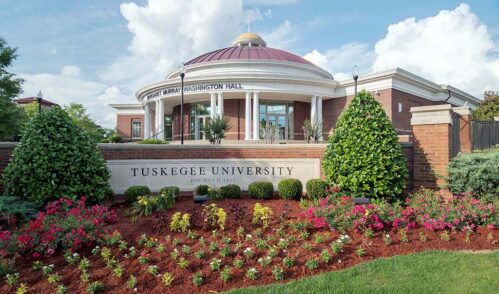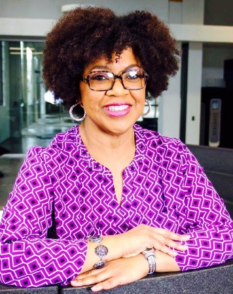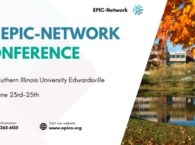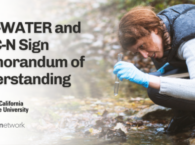Bonita C. Johnson fosters the integration of environmental justice, climate justice, and equity in EPA programs while mentoring participating US EPA interns

Favorite Place
Visiting any water body provides me with a sense of peace, but interestingly, my favorite place is not a beach. Tuskegee University, an Historically Black College and University, is my favorite place. Inspired by the innovativeness of Dr. George Washington Carver who discovered over 300 uses for peanuts, it is where I began my academic journey. When I visit the campus, I instantly feel rejuvenated, refreshed, and inspired to walk in my greatness and to help others do the same.
How did you first learn about EPIC-N?
I learned about EPIC-N from Dr. Laura Bloch, the sustainability advisor for EPA’s Region 9 and a participant in the Office of Community Revitalization-Cadre of Community Advocates. I reached out to Laura while I was developing a project proposal to advance the College/Underserved Community Program (CUPP) toward sustainability. I saw that she had experience with academic-community partnerships and thought that our efforts could be mutually beneficial. We hit it off and formed a collaboration, and then since we share the same goal of improving quality of life, joined it with the already existing Region 9, Office of Research and Development (ORD), and EPIC-N collaboration.
What are some of the top priorities you are working on this year?
My top priorities this year are fostering the integration of environmental justice, climate justice, and equity in EPA programs, and facilitating collaborative partnerships that will advance the sustainability and resilience of underserved, under-resourced, and overburdened communities.
In what ways are you looking to engage, or work with others, either from within the EPIC-Network, or in general?
Working collaboratively maximizes resources. I’m looking to engage and work with others to leverage human, social, intellectual, and technical resources that can help create new knowledge, facilitate capacity development, and the development of approaches that will ultimately reach, benefit, and empower underserved communities.
What led you to participate within the EPIC-Network in your current capacity?
Community resilience includes economic, environmental, and social resilience. Proactive, strategic, and visionary community-driven processes that engage multiple stakeholders are necessary to achieve it. However, underserved communities can’t do it on their own. They need the support of EPIC-N, the EPA, and other entities to help advance and improve their quality of life. We can help communities to help themselves by working collaboratively to communicate, understand, and provide resources that will enhance their capacity as well as the academic partners. Analyzing academic-community partnership project results through a sustainability and resilience lens can possibly lead to greater and more meaningful project planning, the development of solutions, and replicable approaches.
Bio
Bonita C. Johnson, MS-MPA is a senior physical scientist in the Water Division of Region 4 in Atlanta,
GA. Bonita has established 58 academic-community partnership projects in EPA Regions 4, 6, and 7
through her service in the EPA College/Underserved Community Partnership Program (CUPP). In 2021,
she completed 24 academic-community partnership projects and provided underserved communities
comprised of approximately 549,963 residents with access to multiple avenues of support from academic
institutions to address environmental, economic, and social issues that impact their quality of life. Her
current portfolio includes facilitating her CUPP initiated collaborative partnership projects for communities
with environmental justice concerns in North Port St. Joe, Florida; Africatown, Alabama; and the
Gullah/Geechee Nation of St. Helena Island, South Carolina. These coastal communities share common
issues including storm surges and hurricanes, flooding, uninhabitable houses and businesses, adverse
environmental impacts from industries, air and water quality concerns, erosion and sea level rise, and
loss of economy. Bonita also serves as the Water Division Environmental Justice Co-Lead, and Co-Chair
of the Federal Interagency Working Group (IWG) on Environmental Justice, Regional IWG Committee
that works collaboratively with committee members from federal agencies to promote and implement
innovative and comprehensive solutions to address environmental justice issues; to develop partnerships
with academic institutions to assist in providing long-term technical assistance to overburdened
communities; and to foster a coordinated approach to delivering federal support and technical assistance
to improve local community sustainability.



